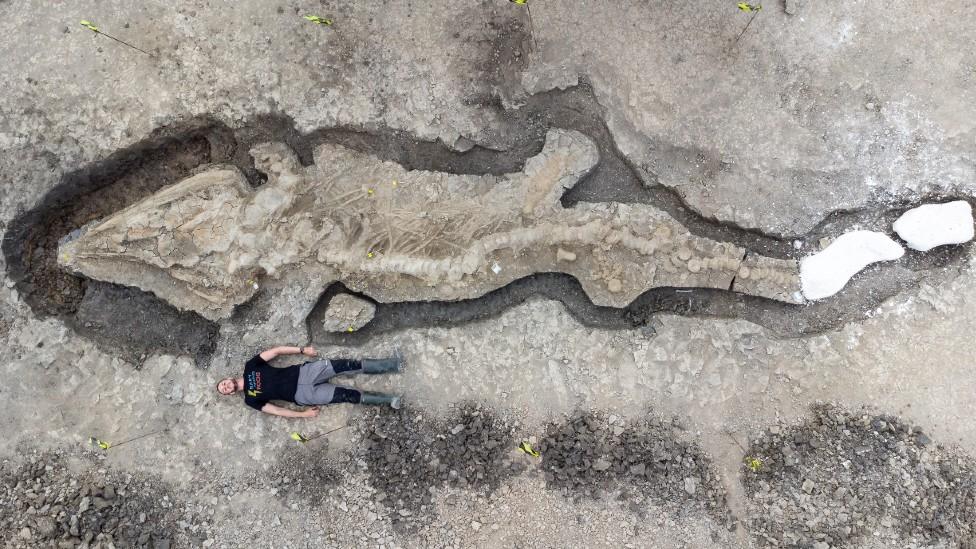Rutland 'sea dragon' recreated as 3D pavement illusion
- Published
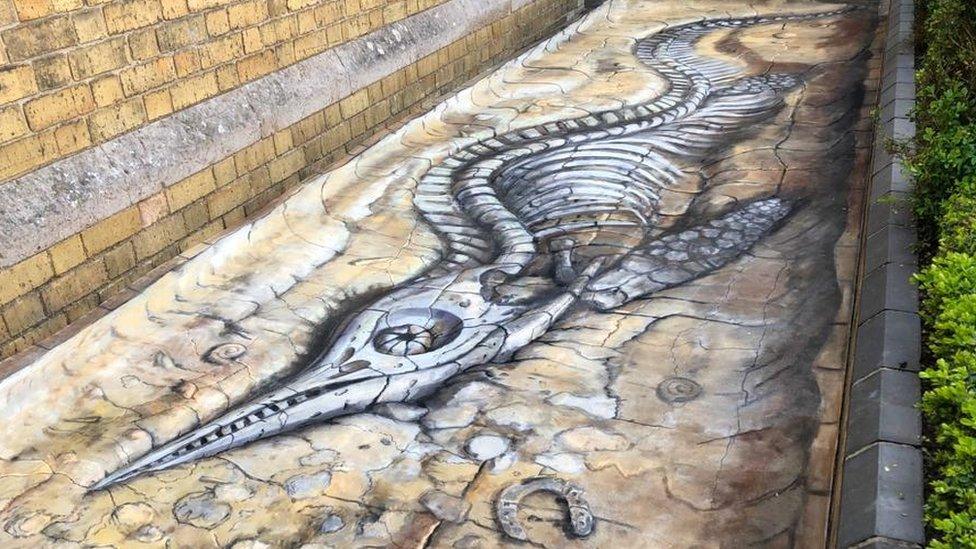
The 3D artwork, which looks like a real fossil buried in the ground, is based on the ichthyosaur fossil found in Rutland
Despite being created from just chalk and pigment, this pavement artwork looks like a three-dimensional fossil when viewed from a certain angle.
It is a recreation of the Rutland ichthyosaur - the largest and most complete fossil of an ichthyosaur skeleton ever discovered.
It has been created by artist Julian Beever, who specialises in drawing what are known as anamorphic illusions.
The aim is to bring visitors to Oakham, near to where the fossil was found.
"I used to do Brooke Bond cards, that you get with tea, and I remember looking at the ichthyosaur when I was about five or six years old, so it's great all these years later to be drawing one," said Mr Beever.

Julian Beever said the eyes can trick the brain, as with this design in Zurich
Anamorphic illusions are drawn in a distorted way, in order to create an impression of three dimensions when they are seen from one particular viewpoint.
The aim of this artwork was to make it look like a real fossil buried in the ground.
"It's a combination of making it look correct from one viewpoint, by making all the lines go towards the viewpoint, and then shading it with shadow and light to make it look as if it's a three-dimensional form," Mr Beever explained.
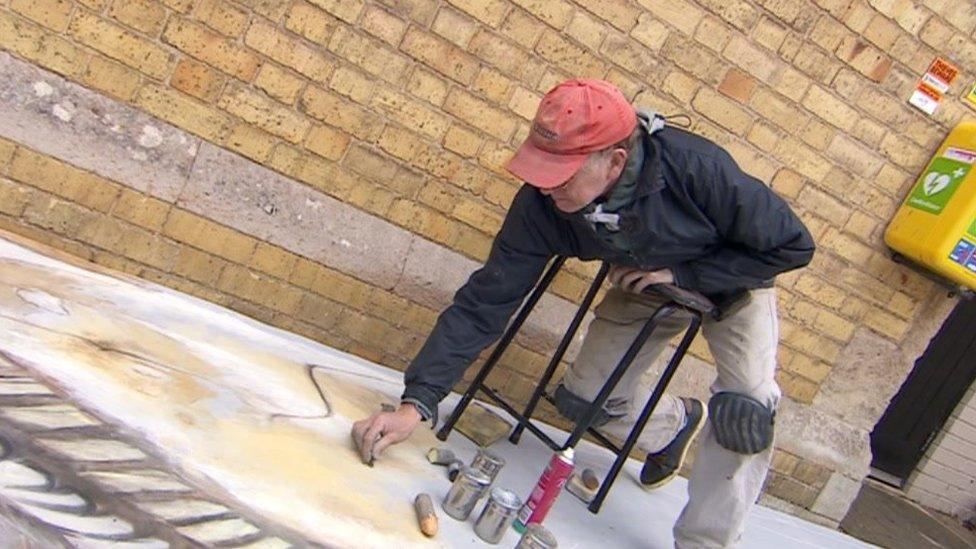
Julian Beever created the artwork from chalk, and also raw pigment in flour sprinklers
The artwork has been drawn on Mill Street in Oakham and will be there for a limited time, until it is washed away by rain.
As Mr Beever worked on the piece, one of the men who discovered the real fossil happened to be passing by.
Paul Trevor, who works for Leicestershire and Rutland Wildlife Trust, found it while working on a conservation project at Rutland Water Nature Reserve with his boss Joe Davis.
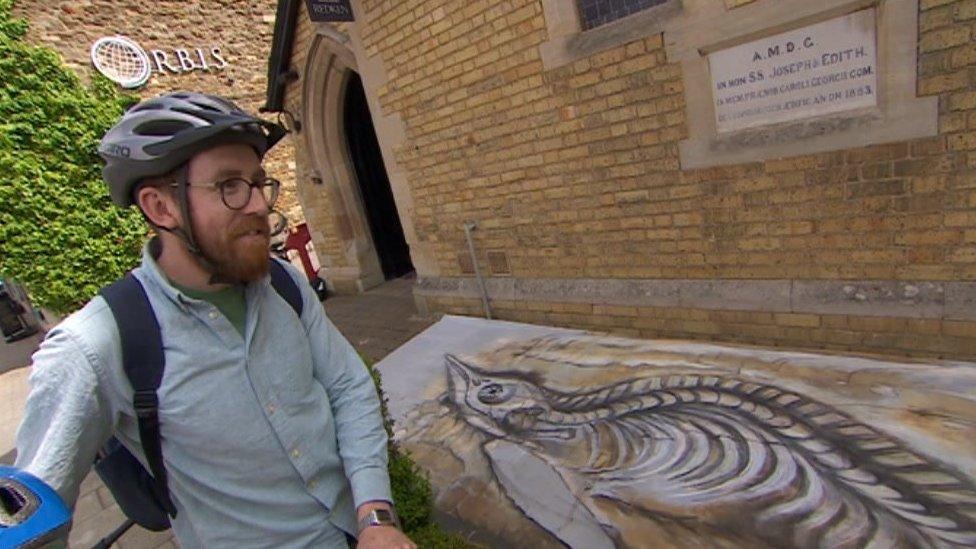
Paul Trevor discovered the ichthyosaur fossil with his boss, Joe Davis
"We had dropped the water really low and it was just sitting there in the mud," said Mr Trevor.
"He was like 'Ooh what's that?' and I was just cold and tired and fed up and thought 'Oh it's just a pipe, let's go and have a cup of tea'."
It was later discovered to be a 33ft (10m) long fossil, which is about 180 million years old.
"The thing that really struck me was how big the skull was - absolutely huge," he said.
"When we initially found it I just thought it would be a couple of bones, a couple of bits of fossil.
"It wasn't until they really exposed it, kind of as you can see it now [in the artwork], that you really got a true sense of the scale of the thing."
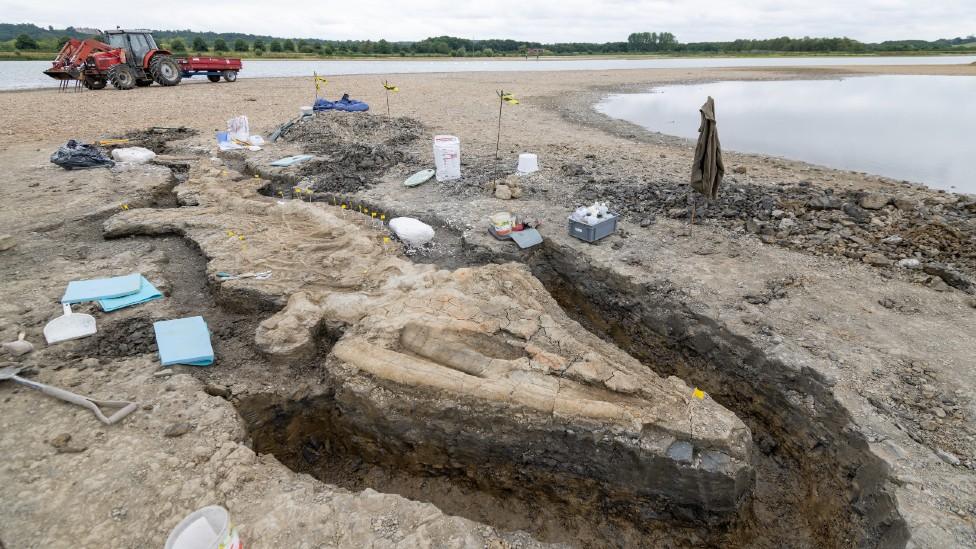
The ichthyosaur fossil was discovered at nearby Rutland Water
The artwork is almost as big as the real fossil, measuring 22ft (7m) in length.
Mr Trevor said it was good to see it being recreated in Oakham.
"It gives people a chance in the town to see what it really looked like in the flesh," he said.
Mr Beever, from Melton Mowbray, is an internationally renowned artist and has worked on commissions in locations around the world.
He was commissioned to create the £3,000 fossil artwork by a group of business owners in Mill Street, who are working together to promote the area following Covid lockdowns.
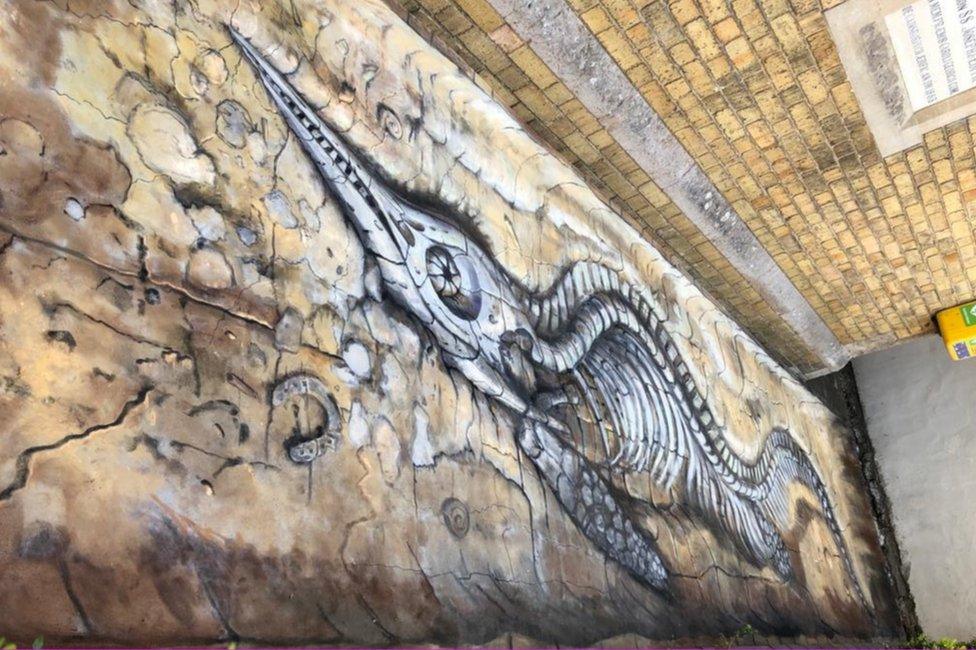
The pavement artwork looks like a three-dimensional fossil when viewed from a certain angle

Follow BBC East Midlands on Facebook, external, on Twitter, external, or on Instagram, external. Send your story ideas to eastmidsnews@bbc.co.uk, external.
- Published11 May 2022
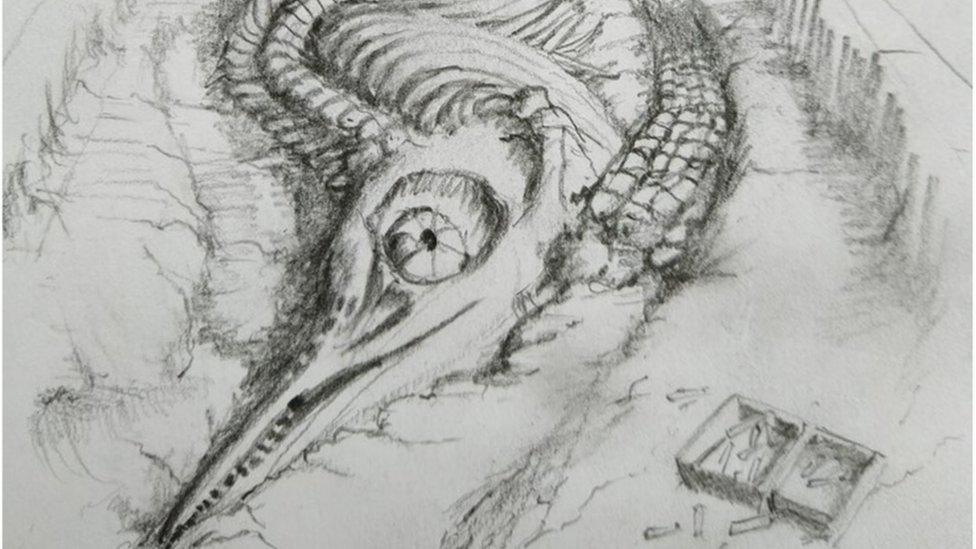
- Published16 January 2022
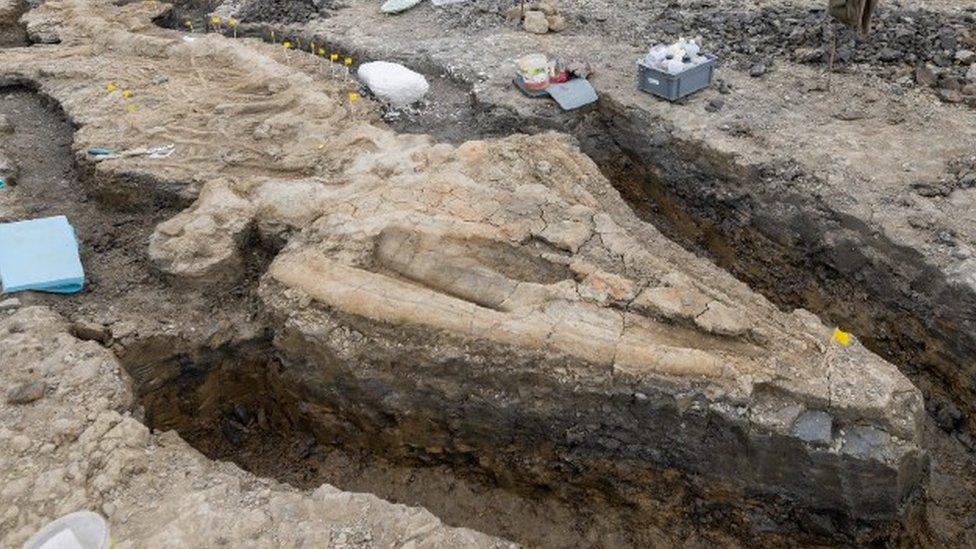
- Published10 January 2022
